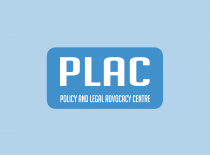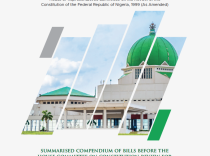The House at its plenary session on Thursday, 19 October 2017 has called on the Federal Government to promote citizens’ health and longevity by increasing taxation on tobacco products and adopting stringent measures that restrict its advertisement. It has also urged the Federal Government to promote smoke-free policies in public places to protect non-smokers from its inadvertent effects.
Presenting the that motion on the floor of the House Hon. Serguis Ogun (APC:Edo) stated that health related issues around tobacco products have been prioritized by countries all over the world because of the grave danger tobacco poses to human health and the environment. He also stated that tobacco accounted for more than seven (7) million deaths around the world annually resulting in decreased household incomes, increased government expenditure in healthcare and loss of productivity. He highlighted the product as a leading public health threat in Nigeria which has an estimate of about five (5) million smoking adults that expose thirty (30) million non-smokers to harmful effects of second-hand smoking like lung cancer.
Speaking further, he stated that the average Nigerian smoker spends about ₦2,000 on tobacco monthly which amounts to an average of about N10 billion monthly from the five (5) million adult smokers and N120 billion annually. However, he was of the view that the FG should prioritize the health of its citizens by discouraging tobacco use through an increase in its taxation and creating awareness on the danger to the environment. The lawmaker stated that tobacco was responsible for cardiovascular and chronic respiratory diseases and seven (7) thousand toxic chemicals that poison the environment. Furthermore, he mentioned that the World Health Organization Framework Convention on Tobacco Control (WHO-FCTC) that was ratified by Nigeria in 2005 agreed to reduce tobacco consumption and prohibit duty free sales of tobacco products.
In addition, he mentioned that the current tax of twenty (20) percent of the retail price on tobacco products in the country was a far cry from the WHO-FCTC benchmark of seventy-five (75) percent and did not conform to international best practices when compared with the 80.5 percent tax in the United Kingdom; 43 percent tax in the United States of America; 49.3 percent tax in South Africa and 52.3 percent tax in Kenya. He further enumerated on some of the benefits of having higher taxes on tobacco products stating that it contributed £12 billion in the United Kingdom and $14.1 billion in the United States annually and would help in mitigating the funding challenges in healthcare services delivery.
Lastly, he suggested that the FG fully implement the M-Power aims of the World Health Organization. The meaning of the acronym is stated below:
M-Monitor tobacco use and prevention policies,
P -Protect people from tobacco use,
O-Offer help to quit tobacco use,
W-Warn about the dangers of tobacco,
E-Enforce ban on tobacco advertising,
R-Raise taxes on tobacco
Consequently, the House mandated its Committee on Finance to interface with the Federal Ministry of Finance to review the current tax regime of tobacco products in view of increasing its tax. It was also agreed that the percentage increase in tax be used to fund healthcare services. The Committee on Healthcare Services was instructed to ensure that the House resolution was implemented and has been given six (6) weeks to report its findings.





